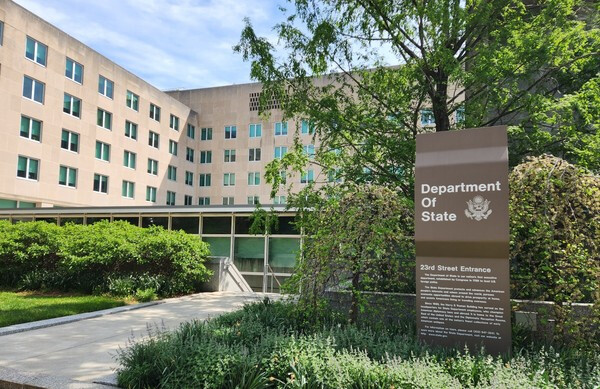
WASHINGTON D.C. – The United States Department of State has once again cast a critical eye on South Korea's handling of international child abduction cases, identifying the nation as one of fifteen countries demonstrating a persistent failure to adequately implement the Hague Convention on the Civil Aspects of International Child Abduction. The department's 2025 annual report to Congress, released on May 2nd, underscores ongoing concerns regarding the enforcement of judicial orders for the return of children wrongfully removed or retained by a parent in cross-border family disputes.
The Hague Convention, a pivotal international treaty that came into force in 1983 and to which South Korea acceded in 2013, aims to safeguard children under the age of 16 from unilateral removal by a parent from their country of habitual residence. The core principle of the convention is the swift return of such children to their home country, allowing the courts of that jurisdiction to determine matters of custody and visitation.
However, the latest State Department report paints a concerning picture of South Korea's adherence to these principles. The report explicitly states that in 2024, South Korea continued a pattern of non-compliance, with a particularly alarming deficiency noted in the routine failure of law enforcement agencies to execute return orders issued by the South Korean judiciary. This systemic issue directly undermines the efficacy of the Hague Convention within the country.
The consequences of this lack of enforcement are starkly illustrated by the data presented in the report. A staggering 44% of all child return requests filed in South Korea experienced delays exceeding twelve months. The average duration for the resolution of these cases stretched to an unacceptable two and a half years, inflicting significant emotional distress on both the left-behind parents and the children involved.
This marks the fourth consecutive year, commencing in 2022, that the United States has officially designated South Korea as a non-compliant nation concerning the Hague Convention. This sustained categorization underscores the persistent nature of the challenges within the South Korean legal and enforcement framework in addressing international child abduction.
South Korea is not alone in facing scrutiny. The State Department's report also names Argentina, Brazil, India, and the United Arab Emirates, among a total of fifteen nations, as exhibiting similar patterns of delay or outright failure in facilitating the return of abducted children. These countries share a common thread of systemic weaknesses that impede the timely and effective implementation of the Hague Convention's central tenets.
Under the obligations of the Hague Convention, signatory nations are mandated to undertake proactive measures to locate children who have been wrongfully removed or retained. Furthermore, they are expected to facilitate mediation efforts between the involved parents to seek amicable resolutions. Crucially, the convention dictates that when a child has been determined to have been unlawfully transferred across international borders, the decisions of the courts in the child's country of habitual residence should take precedence.
The U.S. government's report serves as a strong diplomatic message to the South Korean government, urging immediate and comprehensive action to rectify the identified shortcomings. The report explicitly calls upon Seoul to "urgently pursue institutional reforms and strengthen enforcement to ensure the effectiveness of judicial decisions" related to the Hague Convention. The United States emphasizes the importance of ensuring that court-ordered returns are not merely pronouncements but are actively and promptly enforced by the relevant authorities.
The issue of international parental child abduction is a deeply sensitive one, often involving complex legal and emotional dimensions. The Hague Convention represents a multilateral effort to establish a framework for the swift resolution of these cases, prioritizing the best interests of the child. The repeated designation of South Korea as non-compliant raises serious questions about its commitment to these international legal obligations and its capacity to protect the rights of children and left-behind parents in cross-border disputes.
International legal experts and advocacy groups have long highlighted the detrimental impact of protracted legal battles on children caught in the middle of parental disputes. The delays and failures in enforcing return orders not only prolong the separation of children from their habitually residing parent but can also create instability and emotional harm for the child.
The U.S. government's continued pressure on South Korea underscores the importance it places on the effective implementation of the Hague Convention globally. As a signatory to the treaty, South Korea is expected to uphold its commitments and ensure that its legal and enforcement mechanisms are aligned with the convention's objectives. The international community will be closely watching how South Korea responds to this renewed criticism and whether it will take concrete steps to address the systemic issues that have led to its repeated designation as a non-compliant nation. The well-being of children involved in international parental abduction cases hinges on the prompt and effective cooperation of all signatory countries.
[Copyright (c) Global Economic Times. All Rights Reserved.]






























